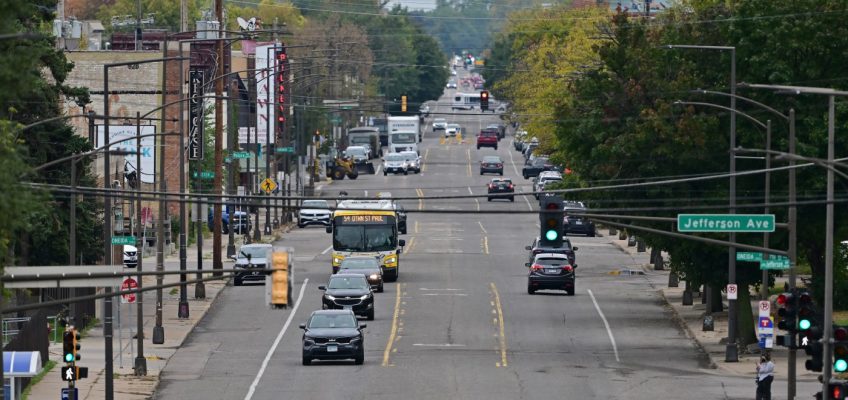It’s that time of year again in Minnesota when schools across the state observe the curious holiday known as MEA weekend. That magical four-day break in October where students rejoice, parents panic, and teachers … well, no one’s entirely sure what teachers do.
Officials at MSP Airport always announce they’re “ready for the surge,” as if every Minnesotan simultaneously realized they can only tolerate this much autumn before fleeing to Disney World, Phoenix or the Wisconsin Dells. It’s the closest thing we have to a state-wide migration ritual — like geese flying south, only instead of elegant V-formations, it’s caravans of Dodge Caravans heading east toward giant water slides..
And here’s the odd thing: This time-honored tradition isn’t a thing in most other states. Try explaining it to someone from Nebraska: “Yeah, the entire state takes two days off in October for … reasons. We don’t ask questions. It’s just MEA.”
Wisconsin has Oktoberfest. Germany has Oktoberfest. Minnesota, naturally, has MEA. It’s basically the same thing if you think about it. They drink beer out of giant mugs; we drink hotel coffee out of tiny Styrofoam cups. They dance in lederhosen; we stand in line at Perkins wearing fleece. They migrate to Munich; we migrate to Wisconsin Dells. The only real difference is that in Oktoberfest, people actually know what they’re celebrating. With MEA, half of Minnesota thinks it’s short for “Mom’s Extended Aggravation,” and the other half assumes it honors some historical figure named Mr. E.A.
For students, MEA is basically spring break in flannel, a mini spring break dropped in the middle of October. Some of them vanish to Florida, and the others spend four straight days in their pajamas eating pizza rolls, playing Minecraft and forgetting how to read.
Parents, meanwhile, know MEA as the weekend where every hotel in Duluth, Brainerd and Wisconsin Dells triples their rates, Perkins is standing-room only, and every dad in Minnesota is saying, “We should’ve left Wednesday night.” By Sunday night, they’ve had it, most parents come crawling back to Monday’s school drop-off muttering, “Teachers deserve a raise. A big one.”
And the teachers? Officially, MEA is short for “Minnesota Education Association,” which sounds serious and professional. Supposedly, they’re attending conferences and professional development workshops. Unofficially, there are two kinds of teachers:
1. The noble few who sit through seminars on differentiated instruction.
2. The others, who can be spotted at the Mall of America on Friday at 10 a.m., wearing sunglasses and nervously whispering, “This is … uh … hands-on economics training.”
And while the kids are off gallivanting and the parents are calculating how much money they just dropped at Great Wolf Lodge, the school itself doesn’t exactly rest. You’d think MEA would be a custodian’s paradise — two quiet days to catch up, refresh, and reset. Maybe even sneak in something that feels like a long winter’s nap.
But no. MEA is when custodians try to cram a week’s worth of buff and shine into forty-eight hours. The floor buffers come out, whining like jet engines in the hallways, erasing over a month’s worth of shoe scuffs that made the place look like the dasher boards at the hockey rink. The cafeteria floors — still sticky from a thousand juice box spills and the great tater-tot avalanche of last Tuesday — get a scrub worthy of a surgical ward. The gym floor, after six weeks of dodgeball, squeaky sneakers, and whatever unidentifiable grit kids manage to track in, finally gets its turn under the polisher.
And just when you think you’ve got a rhythm going, in come the construction crews, or worse — a volleyball tournament where people track in every leaf from a three-county radius. By Monday morning though, the school looks exactly the same as it did on the first day of school. Except now every custodian is walking around like they just ran a marathon in steel-toe boots.
So, in the end, MEA is less about education and more about tradition. It’s Minnesota’s little October holiday — our time-honored reminder that just when you thought the school year had settled into a groove, surprise! It’s time to pack the minivan, eat questionable cheese curds, and join the parade of brake lights on 94, hoping for a pace faster than the line at Culver’s when the Pumpkin Spice shakes come out.
Mark Glende, Rosemount, is an elementary school custodian. “I write about real-life stories with a slight twist of humor,” he says. “I’m not smart enough to make this stuff up.”




